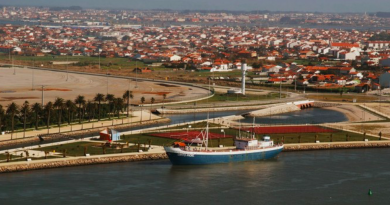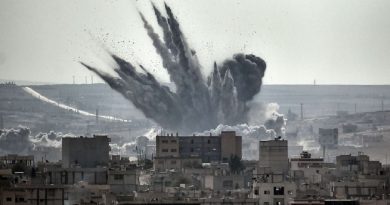Israel and Syria
Hezbollah’s alleged attack
The recent Israeli attack on a military convoy in Syria, which is considered to have been aimed at Hezbollah Shiite militants from Lebanon, points to the persistence of several conflicts that have not been particularly prominent in recent years. While the fight against the Islamic State has served to unify previous enemies under a common goal, the coalition partners have not failed to remind the international community of the differences which remain between them. Israel, for example, has signalled that it will not allow Hezbollah to arm itself under the guise of fighting the Islamic State as this would alter the balance of power in Lebanon and the newly acquired weapons would surely be turned against the Jewish State at some point. The responsive of the Syrian military was out of the ordinary with the launching of anti-aircraft missiles which, despite not hitting their targets, sent a clear message to Jerusalem that the situation is slowly changing. In fact, with the support it receives from Russia, President Bashar al-Assad’s regime has good reason to consider itself as significantly strengthened. With such a strong protector, as is often the case in the Middle East, one has to show it.
Hezbollah: An ally against ISIS
Although Syrian anti-aircraft missile launches will certainly not deter Israel from future attacks, it may force it to plan more carefully and to single out occasions in which it has to react in order to prevent Hezbollah from obtaining new offensive weapons that could pose a threat on Israeli territory. It also seems that Russia and Israel will come to terms on the circumstances behind this latest incident particularly given the shared objectives of both countries. Israel’s capacity to supply the anti-Islamic State coalition with intelligence is of great importance in the ongoing anti-terrorism campaign. In return, Israel is expected to refrain from direct participation in any military action as its military presence on Syrian territory could fray the already rather thin linkages between the countries fighting against the “Caliphate” of Abu Bakr al-Baghdadi.
In order to provide some context to all of this, it is important to remember that there are several wars playing out simultaneously in Syria at the moment. The main conflict, against the Islamic State has taken precedence over the others which continue to simmer and surface on occasion. With a final victory against the Islamic State approaching, the differences between these allies will become all the more evident with the expected resumption of hostilities between some of them at the end of this process. The Islamic State is expected to lose practically all territory currently under its control and thereby return to being a terrorist organization with the “State” in its name losing any meaning. While it remains to be seen who will take over these territories, it can hardly be expected that the ongoing negotiations between Assad and the opposition would be able to prevent future conflicts. Syria will likely remain a factor of instability in a region in which peace is being sought exclusively through temporary measures while a more permanent solution remains on the agenda in a series of peace conference which would be conducted by the United Nations.
Israel and its concern for Syria
For Israel in the short-term, Syrian instability significantly undermines any possible threat that could come from that country since any potential enemies would not be able to threaten it as long as they are fighting for their very survival. From a more long-term perspective, however, this sort of instability is not useful to anyone, including Israel, because expected sporadic incidents would serve as a constant reminder that the Middle East remains far from turning the page towards international cooperation and development.
Bombed mosque in Golan Heights. Photo by Tee Cee / CC BY 2.0
![]() This work is licensed under a Creative Commons Attribution-NonCommercial-ShareAlike 4.0 International License.
This work is licensed under a Creative Commons Attribution-NonCommercial-ShareAlike 4.0 International License.




